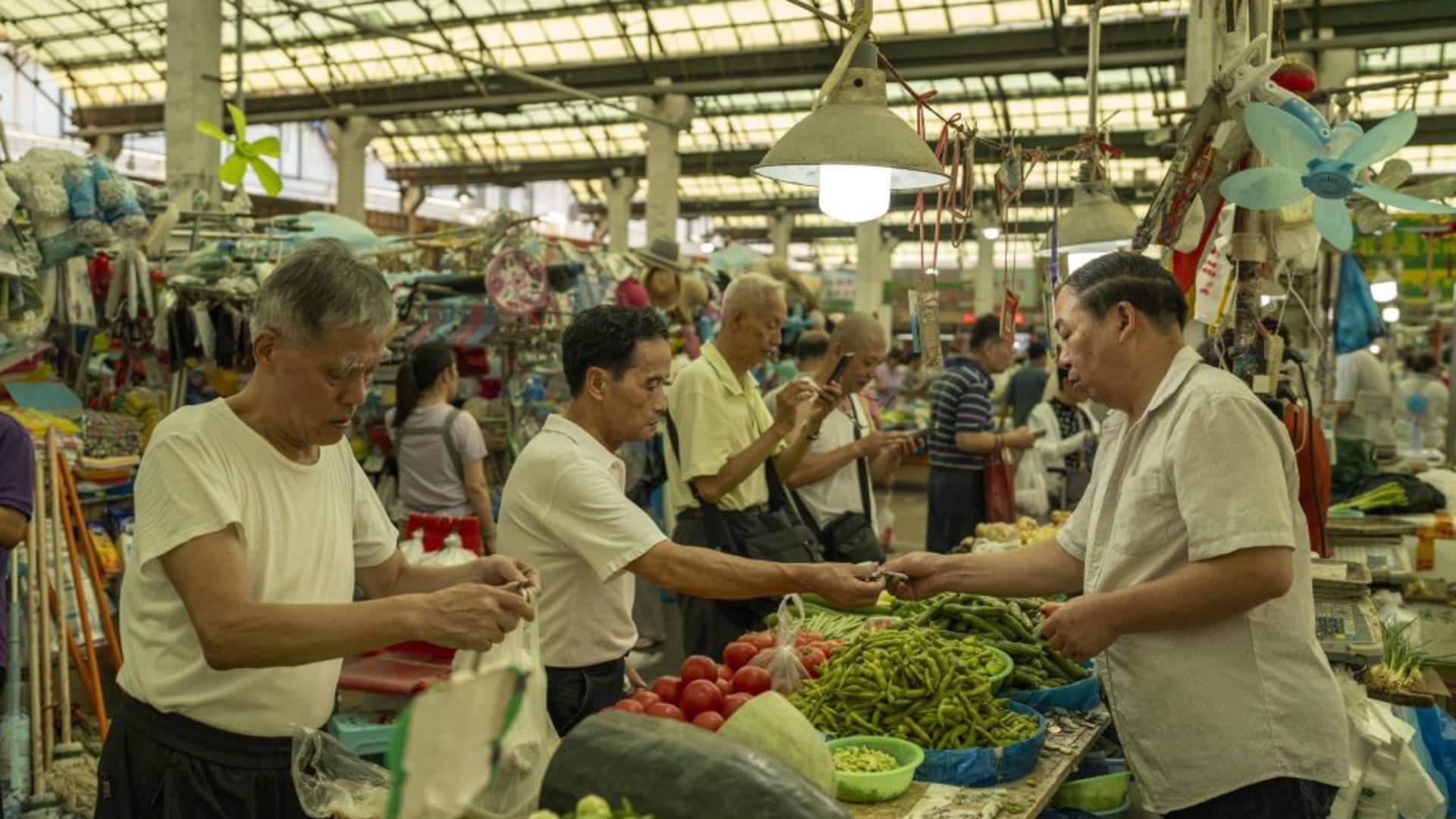Customers at a fresh food market in Shanghai, China, on Monday, Aug. 7, 2023.
Bloomberg | Bloomberg | Getty Images
Asia-Pacific markets tumbled after U.S. inflation for March came in hotter than expected, climbing 3.5% on a year-on-year basis and 0.4% higher compared to the previous month.
Economists surveyed by Dow Jones had been looking for a 0.3% month-on-month gain and 3.4% year-over-year.
Excluding volatile food and energy components, the core CPI also accelerated 0.4% on a monthly basis while rising 3.8% from a year ago, compared with respective estimates for 0.3% and 3.7%.
Investors in Asia will also monitor China’s inflation figures Thursday, with economists polled by Reuters expecting the consumer price index to climb 0.4% in March. This represents a slowdown compared with the 0.7% rise seen in February.
South Korean markets returned to trade after a public holiday, with the Kospi tumbling 1.43% and the small cap Kosdaq sliding 1.16%.
South Korea’s liberal opposition parties scored a landslide victory in a parliamentary election held on Wednesday, likely handicapping incumbent President Yoon Suk Yeol and his conservative party’s efforts to push through their legislative agenda.
Japan’s Nikkei 225 fell 1.25% on its open, while the broad based Topix was down 0.7%.
In Australia, the S&P/ASX 200 slipped 1.22%.
Futures for Hong Kong’s Hang Seng index stood at 16,888, pointing to a weaker open compared to the HSI’s close of 17,139.17. The HSI had crossed the 17,000 for the first time in about a month on Wednesday.
Overnight in the U.S., all three major indexes plunged as the 10-year Treasury yield spiked, with the Dow Jones Industrial Average leading losses and tumbling 1.09%.
The S&P 500 dropped 0.95%, with ten of the 11 S&P 500 sectors finishing the session in negative territory, while the Nasdaq Composite sank 0.84%.
The rate on the 10-year Treasury note topped 4.5%, while the 2-year Treasury yields surged close to 5%.
— CNBC’s Sarah Min and Sophie Kiderlin contributed to this report.

